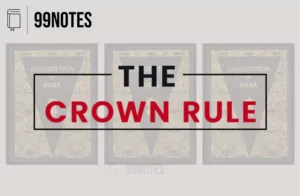21 September 2023 : Daily Current Affair
Daily Current Affairs
21-September-2023
Daily Current Affairs For UPSC ,Daily Current affairs of The hIndu and Indian Express.
1. Lok Sabha passes historic women’s reservation Bill.
Topic: GS2 – Indian polity.
Context:
- The Lok Sabha has passed a historic Women’s Reservation Bill, providing one-third reservation for women in the Lok Sabha and State Assemblies.
- The bill will now proceed to the Rajya Sabha for approval during the Special Session of Parliament.
More information about the news:
- Prime Minister Narendra Modi expressed gratitude to MPs from various parties for their support.
- The bill received overwhelming support in the Lok Sabha, with 454 members voting in favor and only two members opposing it.
- A heated eight-hour debate occurred, with discussions on credit for the bill and the issue of a separate quota for women from Other Backward Classes (OBCs).
- Home Minister Amit Shah assured rectifying any shortcomings in the future, urging support for the bill.
- Some members questioned the delay in implementing the bill due to its linkage with a frozen delimitation exercise until 2026.
Note: for more details on this news – please refer PIB, 21 September 2023.
2. Strained ties with Canada likely to hit hospitality sector
Topic: GS2 – International relations.
Context:
- Strained diplomatic relations between India and Canada are causing concern for Kerala’s hospitality sector.
Additional details regarding the news:
- Kerala receives around 25,000 to 30,000 Canadian tourists annually.
- Both countries have issued travel advisories urging their citizens to exercise caution when traveling to certain regions in the other country.
- Canada is among the top 10 countries contributing to foreign tourist arrivals in Kerala.
- The hospitality sector is worried about the impact on the upcoming tourism season, as previous issues like e-visa delays with the UK led to substantial cancellations last year.
- The diplomatic dispute could negatively affect the hospitality sector and wider ramifications are anticipated.
Reasons for India – Canada tussle:
- Trade disputes: India and Canada have been involved in a number of trade disputes in recent years, including over lentils, dairy products, and steel. These disputes have led to tensions between the two countries.
- Visa issues:India has accused Canada of being unfair in its visa issuance process, and has made it more difficult for Canadians to obtain visas to India. This has caused anger among Canadian citizens and businesses.
- Khalistani separatism:India has accused Canada of harboring Sikh separatists who want to create an independent state of Khalistan. The Canadian government has denied these allegations, but the issue remains a source of tension between the two countries.
3. Study throws light on how gravitational instabilities affect evolution of galaxies
Topic: GS2 – Science and technology
Context:
- A study by the Indian Institute of Astrophysics (IIA) explores the connection between gravitational instabilities and galaxy evolution.
- Aditya from IIA examined the relationship between gravitational instabilities, star formation, gas fraction, timescale for growth of instabilities, and observed morphology.
What does the new study say:
- The study analyzed 175 galaxies from the Spitzer Photometry and Accurate Rotation Curves (SPARC) database to understand the role of dark matter in regulating galaxy stability.
- Spiral galaxies like the Milky Way were found to have higher star formation rates, lower stability, lower gas fractions, and smaller timescales for gravitational instability growth.
- This suggests that gravitational instabilities in spiral galaxies rapidly convert gas into stars, depleting gas reservoirs.
- The study compares stability levels in nearby galaxies with those observed at high redshift, providing insights into gravitational instabilities’ role in galaxy evolution.
What is gravitational instability:
- Gravitational instability is a concept in astrophysics and cosmology.
- It refers to the tendency of matter in a system to collapse under the influence of gravity, leading to the formation of structures.
- These structures can include galaxies, stars, planets, and even larger cosmic structures like galaxy clusters.
- Gravitational instability occurs when the gravitational forces between matter within a system overcome other forces, such as gas pressure or kinetic energy.
- It plays a crucial role in the formation and evolution of celestial objects and cosmic structures in the universe.
- Understanding gravitational instability helps explain the processes that shape the cosmos, from the early universe to the present day.
4. Three years of the Abraham Accords
Topic: GS2 – International relations.
Context:
- The Abraham Accords, signed between Israel and the UAE, Bahrain, and later Morocco, have reached a significant three-year milestone.
- These accords aimed to promote stability and cooperation in the West Asia and North Africa region.
What are Abraham Accords:
The Abraham Accords are a series of historic agreements signed between Israel and several Arab nations, including the United Arab Emirates (UAE), Bahrain, Sudan, and later, Morocco. These accords were brokered by the United States and aimed to normalize diplomatic, economic, and cultural relations between Israel and these Arab countries.
- Diplomatic Normalization: The primary goal of the Abraham Accords was to establish formal diplomatic relations between Israel and Arab states that had historically not recognized or had limited engagement with Israel.
- Economic Cooperation: The accords also facilitated economic cooperation, trade, and investment between the signatory countries. They opened up opportunities for businesses and entrepreneurs to collaborate across borders.
- Brokering by the U.S.: The United States, under the Trump administration, played a pivotal role in brokering these agreements. The signing ceremony took place at the White House in September 2020.
- Expanding Accords: While initially involving the UAE and Bahrain, the Abraham Accords expanded to include Sudan and Morocco. Each nation’s agreement had its unique context and motivations.
- Regional Impact: The accords had a significant impact on the geopolitics of the Middle East, with some nations viewing them as a positive step towards regional stability and cooperation. Others, however, raised concerns about their potential implications for the Israeli-Palestinian conflict.
- India’s Role: India, a key player in the region and a friend to both Israel and Arab nations, closely monitored and welcomed the Abraham Accords. It saw opportunities for enhanced cooperation with all parties involved.
5. Delimitation debate: gender vs regional, caste identities
Topic: GS2 – Indian polity.
The proposed delimitation of Lok Sabha constituencies in India has introduced a complex power shift involving significant factors::
- Regional Power Shift: The delimitation process aims to redistribute Lok Sabha seats based on the current population distribution. This is expected to lead to a shift of political power from the southern states to the northern and eastern regions of India. States with higher population growth rates, such as Madhya Pradesh, Rajasthan, Uttar Pradesh, and Bihar, could gain more seats, while southern states like Kerala and Tamil Nadu may lose seats due to their relatively lower population growth rates.
- Gender Empowerment: In addition to the regional power shift, the proposal includes reserving one-third of Lok Sabha and Assembly seats for women across the country. This move is seen as a significant step toward women’s empowerment in Indian politics. It has garnered widespread support and consensus among national political parties, including the BJP, Congress, and Left parties.
- Population Skew: The population growth rates in northern states have outpaced those in the southern states, creating an imbalance in Lok Sabha representation. The delay in delimitation until after 2026 was based on the hope of achieving more balanced population growth across India. However, this expectation has not materialized, further fueling the need for delimitation.
6. Oldest yet fossils of a plant-eating dinosaur found in Rajasthan
Topic: GS1 – geography
Context:
- Indian scientists from IIT Roorkee have identified dinosaur fossils in the Thar desert near the Jaisalmer Basin.
More about the news:
- The fossils belong to the sauropod dinosaur Tharosaurus indicus, part of the Dicraeosauridae family and Diplodocoidea superfamily.
- These fossils are the oldest known diplodocoid sauropod fossils globally, dating back 167 million years.
- India’s geological history and the arrangement of continents during the Middle Jurassic period suggest India could have been the origin of this sauropod group.
- Further discoveries and research are needed to understand sauropod evolution in India and globally during this crucial period.
Significance: news not much important – but maybe important from prelims perspective
7. What is delimitation, and how does it work?
Topic: GS2- Polity
Context:
- The Nari Shakti Vandan Adhiniyam, (One Hundred and Twenty Eighth Amendment) Bill, 2023, which provides for 33% reservation for women in Lok Sabha and state Assemblies was passed by Lok Sabha, and will likely be cleared by Rajya Sabha as well in Parliament’s ongoing Special Session.
- However, it might be several years before the reservation becomes applicable mainly because it has been made contingent on the delimitation exercise.
What is Delimitation?
- Delimitation is the process of redrawing Parliamentary and Assembly constituencies based on the latest population data.
- It is a constitutional requirement to carry out delimitation of constituencies after every Census.
- Article 82 of the Constitution (“Readjustment after each census”) mandates the “readjustment” in the allocation of seats to every state in Lok Sabha, and the division of every state into constituencies “upon completion of each Census”.
- Articles 81, 170, 330, and 332, which deal with the composition and reservation of seats in Lok Sabha and state Assemblies, also refer to this “readjustment”.
- The delimitation exercise is conducted by an independent delimitation commission.
- Its decisions are considered final, unchallengeable in any court, to prevent indefinite delays in elections.
What does the women’s reservation Bill say on the implementation of the quota?
- The implementation of the reservation provision is not immediate, and is dependent on two processes — a delimitation exercise, and a Census.
- Under the provisions of the Bill, the 2021 Census, whenever it is actually carried out will become the basis for the delimitation exercise that would result in an increase, and redefining of boundaries, of Parliamentary and Assembly constituencies.
- Of these increased numbers of Parliamentary and Assembly constituencies, 33% would be reserved for women, whenever the next elections are due.
- Since the 2024 elections are now only months away, the 2029 election is the earliest that women’s reservation could take effect in Lok Sabha, provided the Census is carried out and its findings are published, and the delimitation exercise is completed before that.
Why is delimitation needed, and how is it carried out?
- The boundaries of Lok Sabha and Assembly constituencies must be redrawn to ensure equitable representation so that the vote of every person carries similar weight.
- Lok Sabha constituencies have to be allotted to every state in a manner that the ratio of the number of constituencies and the population of the state is broadly similar.
- A similar approach is adopted for state Assemblies as well.
- As populations change, there is a need to readjust the number and boundaries of the constituencies.
- Apart from population figures, delimitation also aims at a fair division of geographical areas into seats to guard against allegations of gerrymandering, which means redrawing seat boundaries in a way that no political party has an unfair advantage over another.
When was the last delimitation exercise carried out?
- While the Census has been carried out seven times since Independence, delimitation has happened only four times— in 1952, 1963, 1973, and 2002.
- The last delimitation exercise, in 2002, only involved itself with redrawing the boundaries of constituencies.
- It did not result in the increase in the number of constituencies.
- This means that the number of Lok Sabha constituencies has not changed since 1976.
8. Lok Sabha clears Women’s reservation Bill
Topic: GS2-Polity
Context:
- Clearing the decks for a landmark legislation on 33% reservation for women in Lok Sabha and state Assemblies, the Lower House passed the women’s reservation Bill – the Constitution (One Hundred and Twenty-Eighth Amendment) Bill, 2023
Arguments in Favour of the bill:
- Increase in the political representation of women.
- Ability of Women leadership in Bringing Change
- Step towards Decriminalisation of Politics
- Addressing Crime Against Women
- Increasing the number of seats commensurately with Vote share
- Breaking the patriarchal Mould of Indian Politics-
- Changing Stereotypes
- Improvement of Economic Performance and Infrastructure.
Arguments against the bill:
- No separate OBC reservation
- No reservation in the Rajya Sabha and legislative Councils
- Enactment of the Bill
- Use of Women as proxies
- Against the Principles of Equality enshrined in the constitution
- Women not homogeneous group like caste groups
- Restriction of Choice of Voters
9. Science awards to be called Rashtriya Vigyan Puraskar
Topic: GS3-Science and tech, GS2- Policy and schemes
Context:
- The Union Government is consolidating nearly 300 science awards from various science-affiliated Ministries into 56 centrally-administered Rashtriya Vigyan Puraskar (RVP) awards.
- These awards will no longer include cash prizes; instead, they will offer a certificate and medallion to the awardee.
- Will be announced annually on May 11, coinciding with National Technology Day.
- Will be awarded on National Space Day, which falls on August 23.
Categories of RVP Awards:
The RVP awards will comprise:
- 3 Vigyan Ratna awards,
- 25 Vigyan Shri awards,
- 25 Vigyan Yuva-Shanti Swarup Bhatnagar awards, and
- 3 Vigyan Team awards.
These awards will cover various disciplines, including physics, chemistry, biological sciences, mathematics and computer science, earth science, medicine, engineering science, agricultural science, environmental science, technology and innovation, atomic energy, space science and technology, and a category called ‘Others’.
- The proposal emphasizes fair representation and gender diversity among awardees.
- Eligibility extended to Persons of Indian Origin (PIOs) with category-specific quotas.
Award Criteria:
- Vigyan Ratna awards will recognize “lifetime contributions along with excellence made in any field of science”.
- Vigyan Shri awards will honor“distinguished contribution to any field”
- Vigyan Yuva-Shanti Swarup Bhatnagar Awards will celebrate “exceptional contribution by young scientists”.
- Vigyan Team awards will be for three or more researchers who have made an “exceptional contribution as a team”.
- PIOs will not be eligible for the Vigyan Team awards.
- There are no age limits for most prizes, except the Vigyan Yuva-Shanti Swarup Bhatnagar awards, which have a maximum age limit of 45 years for recipients.
Commencement and Administration:
- The RVP awards will begin in 2024 and will be conferred by the President of India or the Vice President.
A committee will be constituted annually consisting of:
- Secretaries from six science Ministries
- Presidents of science and engineering academies, and
- Distinguished scientists and technologists from various fields.
The Council of Scientific and Industrial Research (CSIR) will manage awards initially for two years, then oversight shifts to the National Research Foundation.
10. Diplomatic standoff won’t affect IPACC: Top Army officer
Topic: Prelims
Context:
- The ongoing diplomatic standoff between India and Canada will not impact the Indo-Pacific Armies Chiefs Conference (IPACC) to be held in Delhi next week which will also see participation from the Canadian Army.
About IPACC:
- The IPACC started in 1999 as a biennial event and is attended by Army Chiefs of countries of the Indo-Pacific region, to discuss issues of mutual interest.
- Around 15 Army Chiefs and delegations from 22 countries will attend this event in Delhi.
Way Forward:
- The conference will emerge as a testimony to the shared resolve of participating countries and facilitate fruitful discussions.
- This will allow the partnerships between the participating countries to be further enduring by exchanging views and sharing best practices.
11. Food animal’ tag for Northeast’s Mithun
Topic: Prelims
Context:
- Food Safety and Standards Authority of India (FSSAI) has recognized the bovine as a ‘food animal’.
About Mithun:
- The mithun, which goes by its scientific name Bos frontalis, is a ruminant species of the Bovidae family found in Arunachal Pradesh, Nagaland, Manipur and Mizoram.
- The mithun or gayal (Bos frontalis),is considered as a descendant of the Indian Gaur or bison.
- It is distributed in Northeast India, Bangladesh, northern Myanmar and in Yunnan, China.
- Reared under free-range conditions in hilly forests, the mithun is known as the ‘cattle of the mountain’.
- It plays an important role in the socio-economic and cultural life of tribes viz. the Nyishi, Apatani, Galo and Adi in Arunachal Pradesh.
- The Mithun is the state animal of Arunachal Pradesh and Nagaland.
IUCN status:
- It is listed in CITES Appendix I.
For Enquiry

21 September 2023 : Daily Current Affair

21 September 2023 : The Hindu Editorial Notes PDF

20 September 2023 : Daily Quiz

20 September 2023 : Daily Answer Writing

20 September 2023 : Indian Express

20 September 2023 : PIB

20 September 2023 : Daily Current Affair

20 September 2023 : The Hindu Editorial Notes PDF

THE CROWN RULE (1858-1947)

19 September 2023 : Daily Quiz
Daily Current Affairs 21 September 2023 : Daily Current Affair Daily Current Affairs
20-September-2023
Daily Current Affairs For UPSC ,Daily Current affairs of The…
September- The Hindu Editorial 21 September 2023 : The Hindu Editorial Notes PDF The Hindu Editorial
21-September-2023
Daily Current Affairs For UPSC ,The Hindu Editorial Summary
Facebook-f
Twitter
Youtube
1. Taking…
Daily Quiz 20 September 2023 : Daily Quiz 20 Sep 2023 : Daily Quiz…
mains answer writing 20 September 2023 : Daily Answer Writing Mains Answer Writing
One of the key components of these exams is the written test, which consists of…
Indian Express 20 September 2023 : Indian Express Indian Express
20-September-2023
The Indian Express, CSE candidates can stay informed about current…
PIB 20 September 2023 : PIB PRESS INFORMATION BUREAU
20-September -2023
Daily Current Affairs For UPSC ,The PIB ( Press Information…
Daily Current Affairs 20 September 2023 : Daily Current Affair Daily Current Affairs
20-September-2023
Daily Current Affairs For UPSC ,Daily Current affairs of The…
September- The Hindu Editorial 20 September 2023 : The Hindu Editorial Notes PDF The Hindu Editorial
20-September-2023
Daily Current Affairs For UPSC ,The Hindu Editorial Summary
Facebook-f
Twitter
Youtube
1. The…
Polity THE CROWN RULE (1858-1947) The Crown Rule refers to the British Raj or Direct rule in India. It was the time when the British power…
Daily Quiz 19 September 2023 : Daily Quiz 19 Sep 2023 : Daily Quiz…



